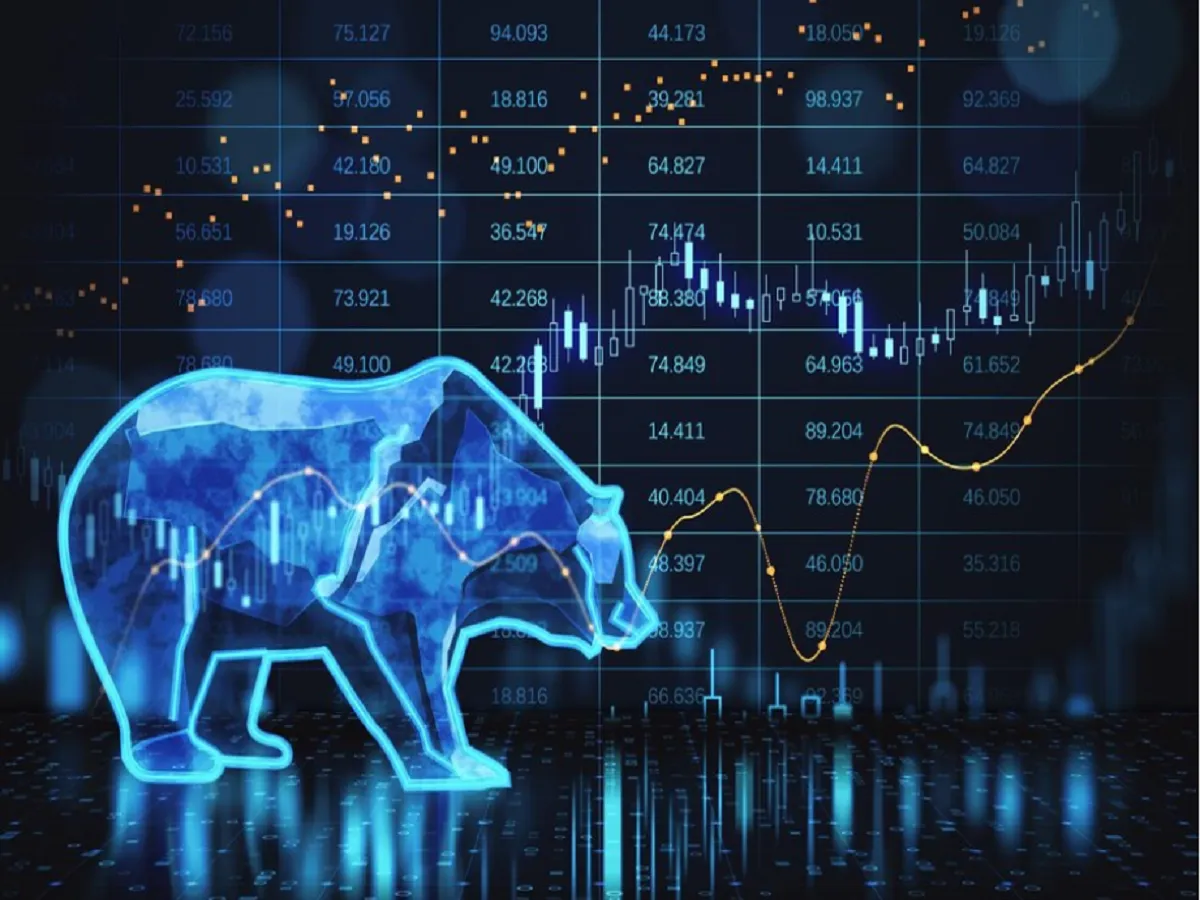Market News
Market Wrap, April 3: Indices end lower post Trump's reciprocal tariffs, SENSEX down 322 pts, NIFTY50 settles below 23,300 mark; pharma shares rally

5 min read | Updated on April 03, 2025, 16:27 IST
SUMMARY
At close, the S&P BSE SENSEX stood at 76,295.36, declining 322.08 points, or 0.42%, while the NSE's NIFTY50 index ended at 23,250.10, falling 82.25 points, or 0.35%

The broader market, which witnessed a volatile session on Thursday, also closed in the green. | Image: Freepik
The Indian equity benchmark indices on Thursday, April 3, closed lower but were resilient as US President Donald Trump announced a 27% reciprocal tariff on India and 25% tariffs on the auto industry.
Sectors like information technology, auto and chemicals were mostly impacted due to the tariff, but gains in the pharma, banking and textile sectors helped the market.
At close, the S&P BSE SENSEX stood at 76,295.36, declining 322.08 points, or 0.42%, while the NSE's NIFTY50 index ended at 23,250.10, falling 82.25 points, or 0.35%.
The market breadth, however, remained in favour of positives as 2,057 stocks advanced out of 2,963 traded on NIFTY50.
The broader market, which witnessed a volatile session on Thursday, also closed in the green.
While announcing a tariff on India, the US President on Wednesday said, “India, very, very tough. Very, very tough. They charge us 52%. You have to understand, we charged them almost nothing for years and years and decades, and it was only seven years ago, when I came in, that we started with China.”
The heightened global uncertainty due to the US sweeping tariffs on India and other countries may cause near-term corrections and market turbulence, but the long-term outlook remains constructive, market experts told PTI on Thursday.
An official statement from the Department of Commerce said that India is carefully examining the implications of the US reciprocal tariffs and is engaged with all stakeholders, including domestic industry and exporters, to seek their feedback on the issue.
The commerce ministry said that it is also studying the opportunities that may arise due to this new development in the US trade policy.
Globally, the US markets closed in the green on Wednesday night with gains of up to 0.8%. The Dow Jones and S&P 500 closed with 0.6% gains, and NASDAQ closed with 0.87%.
The Japanese, Korean and Chinese markets tumble on reciprocal tariff announcements.
Japan’s benchmark Nikkei 225 index closed 2.8% lower, South Korea’s Kospi index dropped 1% at close, while Hong Kong’s benchmark Hang Seng Index declined 1.5%. Markets in Taiwan were closed on Thursday.
Australia, which faced a 10% tariff from the US, had the benchmark ASX 200 index close 0.9% down.
Meanwhile, foreign institutional investors (FIIs) offloaded equities worth ₹1,538.88 crore on Wednesday, while the domestic institutional investors (DIIs) purchased equities worth ₹2,808.83 crore.
As many as 2,963 stocks traded on the NSE on Thursday. Out of this, 2,057 advanced, and only 829 stocks declined, while 77 scripts remained unchanged.
A total of 37 stocks hit their 52-week highs, while 24 stocks touched their one-year lows. Besides, 287 stocks hit their upper circuit limits, and only 25 touched their lower circuit bands on Thursday.
Market capitalisation of NSE-listed firms stood at ₹411.12 lakh crore.
The volatility index India VIX slipped 0.89% to 13.60 levels.
The broader market witnessed a volatile trading day but settled positive on Thursday. Nifty Midcap 100 edged higher by 0.21% to 52,162.15, while Nifty Smallcap 100 gained 0.58% to the 16,255.45 level.
Among sectors, Nifty IT faced the maximum impact of the US tariff announcement, plunging 4.21%, followed by Nifty Midsmall IT and Telecom (-3.61%), Nifty Auto (-1.14%), Nifty Metal (-0.82%), Nifty Oil and Gas (-0.49%) and Nifty Realty (-0.10%).
However, Nifty Pharma (2.25%), Nifty Healthcare index (1.98%), Nifty PSU Bank (1.94%), Nifty Midsmall Healthcare (1.83%) and Nifty Midsmall Financial Services (1.29%) were the most gaining sectors.
Tata Consultancy Services (TCS), HCL Technologies, Tech Mahindra, Infosys and ONGC were the biggest laggards on the NIFTY50 index, falling as much as 3.97%.
On the other side, Power Grid, Sun Pharma, Cipla, UltraTech Cement and Shriram Finance were the most gaining scrips, surging as much as 4.60% on the 50-share index.
According to a report by CNBC-TV 18, the RBI letter states that Bajaj Finance has not proactively identified gaps and vulnerabilities and also flags significant risk to customers. The letter also cites the earlier letter dated January 31 this year and Bajaj Finance's response dated February 22.
The sector was trading negatively on concerns of rising inflation following the tariff announcement and a slowing economy. The Trump administration, however, has not said anything specific to the sector.
The public sector bank’s global business rose 11.44% year-on-year (YoY) to ₹27.03 lakh crore as of March 31, 2025, compared to ₹24.25 lakh crore in the year-ago period.
About The Author
Next Story

